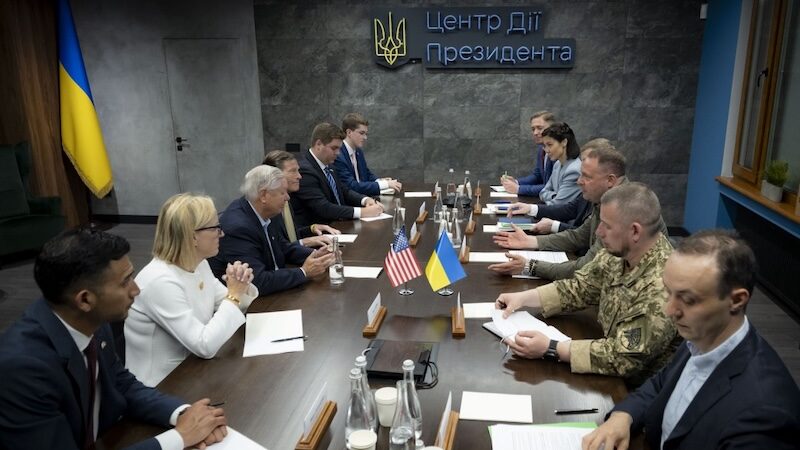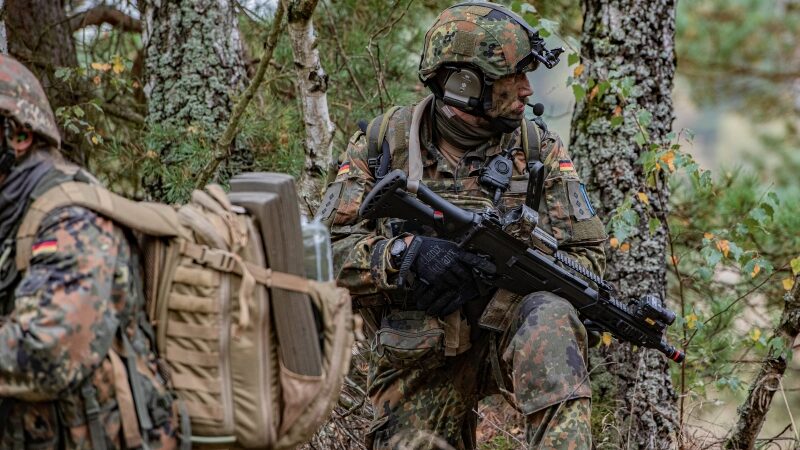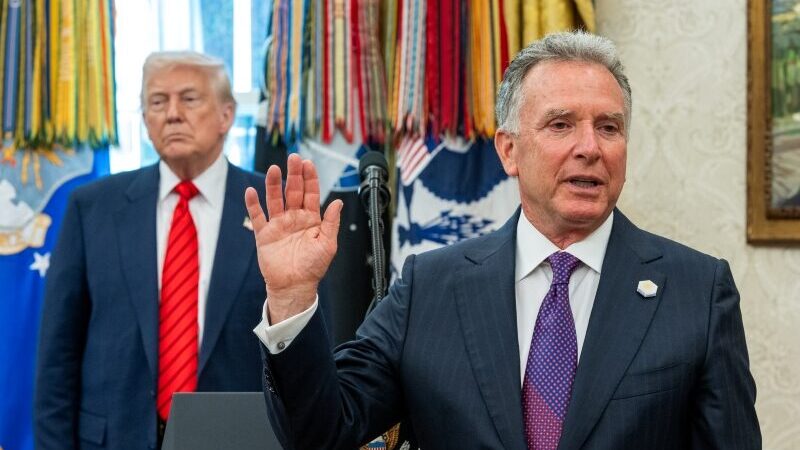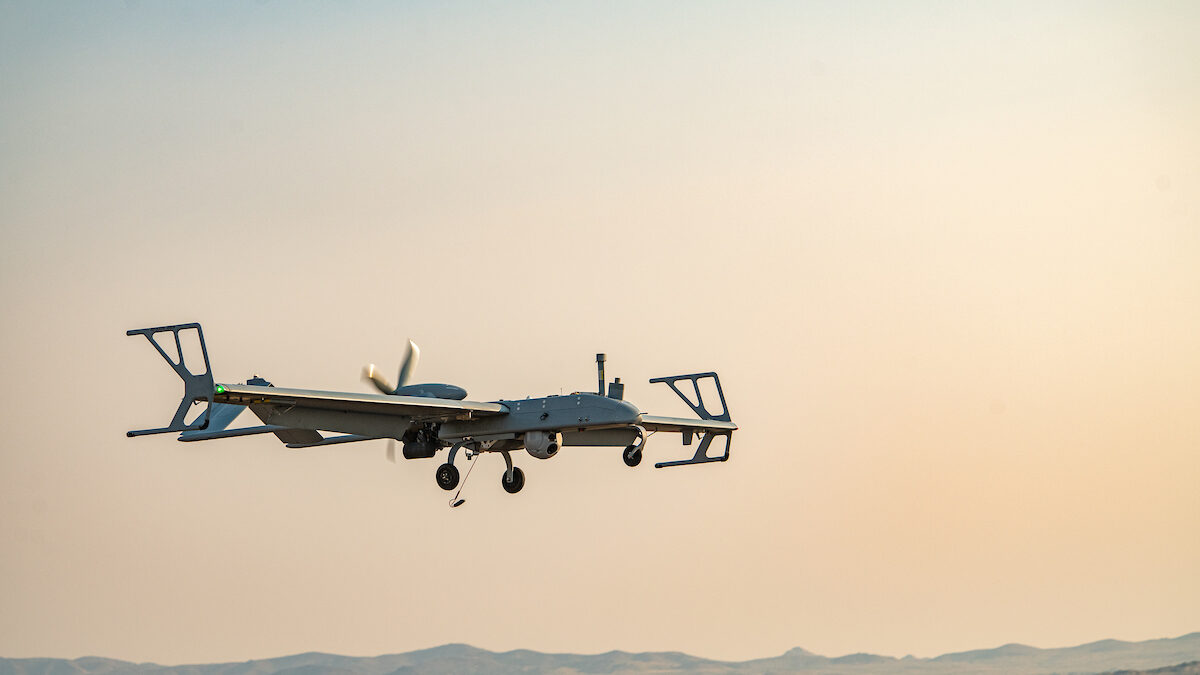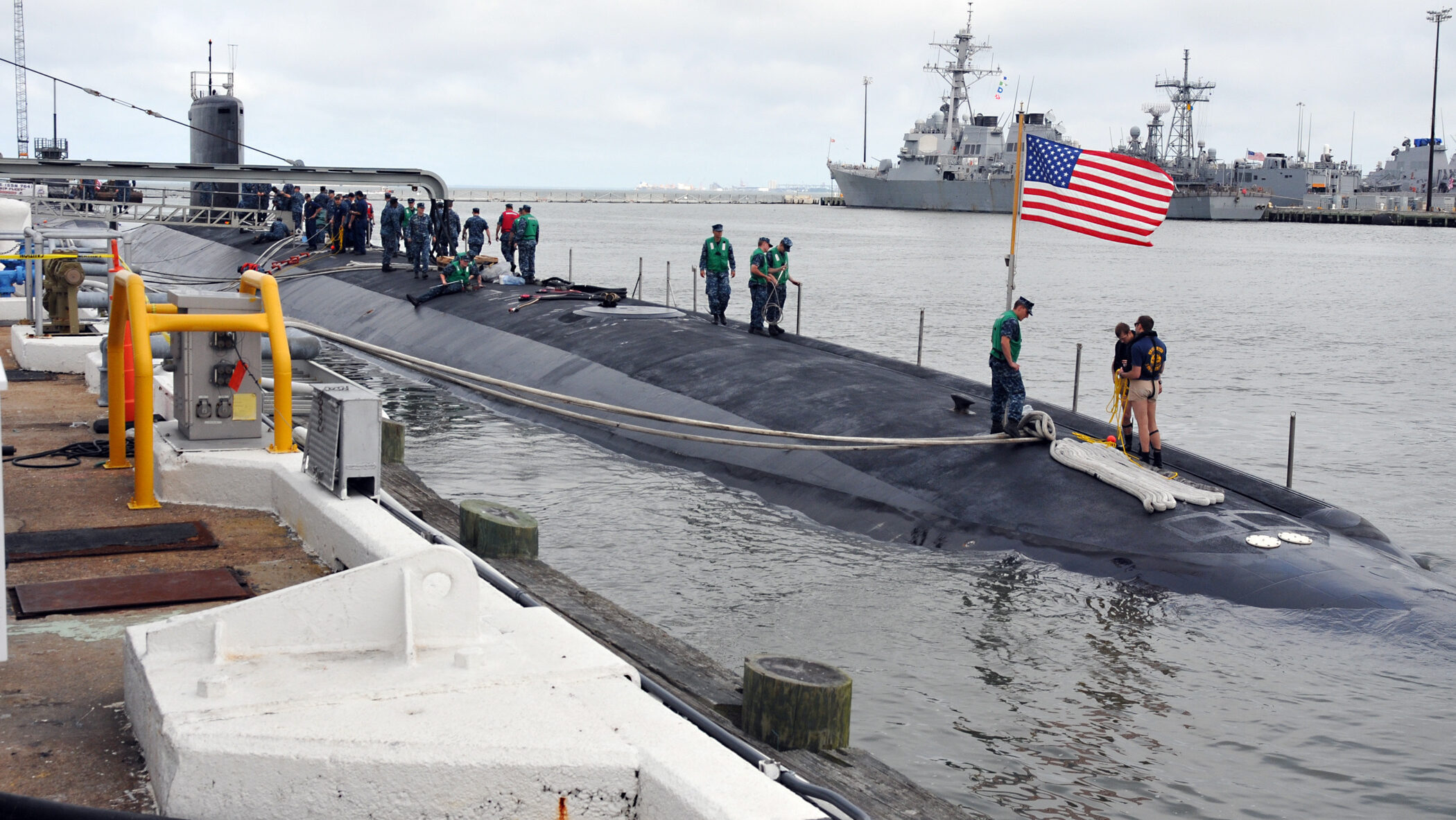Palantir, Meta, OpenAI execs to commission into Army reserve, form ‘Detachment 201’
“There’s an urgency to change and transform the Army and these guys [are] going to help,” said Col Dave Butler.


Shyam Sankar, chief technology officer of Palantir Technologies Inc., speaks during the Hill & Valley forum at the US Capitol in Washington, DC, US, on Wednesday, April 30, 2025. (Al Drago/Bloomberg via Getty Images)
WASHINGTON — The US Army today will direct commission four tech executives at the rank of Lt. Col., charging them with leading a new Army innovation corps inside the Reserve component, according to a service spokesman.
“Detachment 201 is being created to bring in tech innovation executives leaders to help the Army … on broader conceptual things like talent management, how do we bring in tech focused people into the ranks of the military, and then, how do we train them,” Col. Dave Butler, the top spokesman for the Army Chief of Staff, told Breaking Defense today.
This initial cohort of executives includes the chief technology officer from Palantir, Shyam Sankar, whose “Defense Reformation” website has become a talking point among defense tech community; Andrew Bosworth, the chief technology officer from Meta; Kevin Weil, OpenAI’s chief product officer and Bob McGrew who, until November, was chief research officer at at OpenAI. The Wall Street Journal first reported on the plan.
The four will be sworn in tonight ahead of the service’s 250th birthday celebration on Saturday, Butler said.
The move comes as the Trump administration embraces venture capital and tech industries, including VC-backed startups like Anduril, Palantir and others who have begun to take root as major players in the defense industrial base. The Trump administration’s nominee to take the reins as the Army’s No. 2 two civilian, Michael Obadal, is an Anduril employee.
Army Chief of Staff Gen. Randy George and Army Secretary Dan Driscoll have also been focused on giving tech startups and non-traditional defense companies a more prominent role inside the service. Driscoll has even called it a “success” if a large prime contractor closes its doors in the coming years if they can’t start operating more efficiently.
“I will measure it as success if in the next two years, one of the primes is no longer in business, and the rest of them have all gotten stronger,” he said in May on the TBPN podcast.
As the new era of defense tech sweeps through the halls of the Pentagon and the Army stands up Detachment 201, Butler said the service will try to ensure that there isn’t a conflict of interest between the executives coming in as lieutenant colonels and the companies they still work for. (For instance, Meta and Anduril are teamed together to compete for the Army’s next-gen heads up display.)
“There’s plenty of precedent for this,” Butler said. “We’ve done this over and over when our nation needed top talent. The difference is we used to do it in wartime now we’re doing it ahead of wartime so that we can prepare and deter.”
“There’s an urgency to change and transform the Army and these guys [are] going to help,” he added.
As for what the founders of Detachment 201 will be doing, Butler said it is not expected to revolve around programs of record or big-ticket acquisitions. Instead, they will be looking at much “broader” topics and there will be firewalls in place to protect both the Army and their respective companies.
“Det. 201 is an effort to recruit senior tech executives to serve part-time in the Army Reserve as senior advisors,” an Army statement announcing the news said. “In this role they will work on targeted projects to help guide rapid and scalable tech solutions to complex problems. By bringing private-sector know-how into uniform, Det. 201 is supercharging efforts like the Army Transformation Initiative, which aims to make the force leaner, smarter, and more lethal.”











































































































